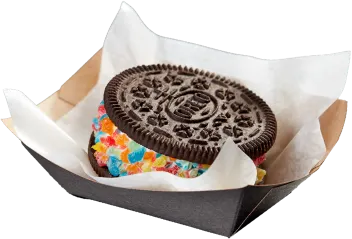Consumers’ desire to feel good about their diets encompasses not only the quality and nutritional value of the foods they eat, but also their sourcing and sustainability.
The trend is directly related to the growth of the organic and natural phenomenon across the food industry, according to Laurie Demeritt, CEO of Bellevue, Washington-based research firm The Hartman Group.
“The fact that today’s consumers seek more specific information about the foods and beverages they buy is a natural evolution of their interest in, and adoption of, organic and natural products,” explains Demeritt, who says consumers are seeking foods that are fresh, less processed and “real.” Communicating those attributes will therefore be critical for food companies going forward.
“Manufacturers, retailers and foodservice will need to adapt to align with these shifting consumer values,” she adds.
Sustainable Snacks
Sustainability was a key trend discussed at last year’s Multi-Unit Foodservice Operators (MUFSO) Conference. Furthermore, sustainable and better-for-you food trends are consistent with findings showing that the future of snacking is wellness-oriented and balanced.
“In the next five years, people’s top hopes for snack foods are that they become more functional to meet nutritional needs (47%) and provide more personalized nutrition (42%),” states one report on the state of snacking , which highlights consumers’ interest in health and describes “mindful snacking” as a way to simultaneously care for oneself and for the planet.
“At Mondelēz International, we believe our consumers shouldn’t have to choose between snacking and eating right,” says Christine Montenegro McGrath, vice president and chief of global impact, sustainability and well-being. “And they shouldn’t have to worry about the impact their snack choices have on the world.”
Mondelēz International is responding to demands for transparency around ingredients with foodservice solutions such as its OREO Cookie Pieces and Base Cake, which it has reformulated to exclude high-fructose corn syrup (HFCS). The company has also expanded its retail product lineup through acquisitions to include other products that are committed to high standards of ingredient transparency, nutrition and sustainability. These include Perfect Snacks bars and bites and a range of products from Enjoy Life Foods—Plentils lentil chips among them.
Four Takes on Eco-Friendly Eating
Younger consumers in particular are factoring ingredient transparency and sustainability into an increasing number of their purchasing decisions. For example, 87% of Gen Zers say they are worried about the environment and the planet, according to the 2019 Porter Novelli/Cone Gen Z Purpose Study, which found that young people rank the environment second among the priorities they think companies should address.
An increasing number of onsite foodservice operators are embracing this ethos. Here are three examples: Younger consumers in particular are factoring ingredient transparency and sustainability into an increasing number of their purchasing decisions. For example, 87% of Gen Zers say they are worried about the environment and the planet, according to the 2019 Porter Novelli/Cone Gen Z Purpose Study,which found that young people rank the environment second among the priorities they think companies should address. An increasing number of onsite foodservice operators are embracing this ethos. Here are three examples: Columbia University integrates its foodservice program, Columbia Dining, into Sustainable Columbia, its sustainability plan encompassing the entire university. The New York City school sources about 54% of its food from within 250 miles of its campus, for example, and procures baked goods and grab-and-go sandwiches from within the city's five boroughs. The Ohio State Universityaims to source 40% of its food from local and sustainable sources by 2025,Senior Director of Dining Services Zia Ahmed reported during a panel presentation at a recent conference of the National Association of College and University Food Services (NACUFS).
“We are well on our way,” Ahmed said, adding that he also wants to achieve 100% transparency in all ingredients within the same time frame. During a recent Society for Hospitality and Foodservice Management conference, Michiel Bakker, director of global programs for real estate and workplace services at Google, said the company’s cutting-edge food program at its corporate campuses has evolved from focusing primarily on consumer health to becoming “a better steward to the world at large.”
The initiative enables consumers to make better choices around living sustainable lifestyles; shifts consumers toward balanced, plant-based diets; enhances food systems’ transparency; reduces food loss and waste; and accelerates the transition to a circular food economy.
Bakker says Google’s food program seeks to answer this question: “How might we contribute to enabling the planet to feed [and] nourish 10 billion people [by 2050] in sustainable, inclusive, efficient, nutritious and healthy ways?”
Many fast-casual restaurant concepts also are featuring menus that emphasize ingredient transparency and sustainability. For example:
Sustainability and transparency are core values at CoreLife Eatery, an Endicott, New York-based chain of health-focused restaurants whose menu features “greens, grains and bone broth” as building blocks.“Everything we prepare starts as real, whole food, and we focus on the best, freshest available,”the company says on its website That means that we work with those around us to find the foods that are at their peak. We look for organic and GMO-free. Even the bones that we simmer every night are sourced from organic farms. We want to reflect a new way of thinking about food — a practice of sourcing that fuels the body and the soul.” Operators seeking to reach today’s consumers must holistically embrace the values of nutrition, sustainability and ingredient transparency both on their menus and through their actions. Working with health- and eco-conscious suppliers can help them do so. Mondelēz International is making progress in delivering sustainable and mindful snacking. Find out how.
Stay Top of Mind With Operators
Read about 6 Trends Changing and Challenging the Foodservice Status Quo in 2022. Read Article
Recent Posts
All in Good Time: What Makes for a Winning LTO in 2021?
Chefs Cook Up the Future of Fast Casual Restaurant Operations
Chocolate 2.0: The Future of Chocolate Snacks & Desserts
Delivery-Only Restaurants Steer Foodservice in New Direction
Posts by Topic

Join our email list and be the first to know when we drop new articles, trends and insights with updates delivered directly to your inbox.




